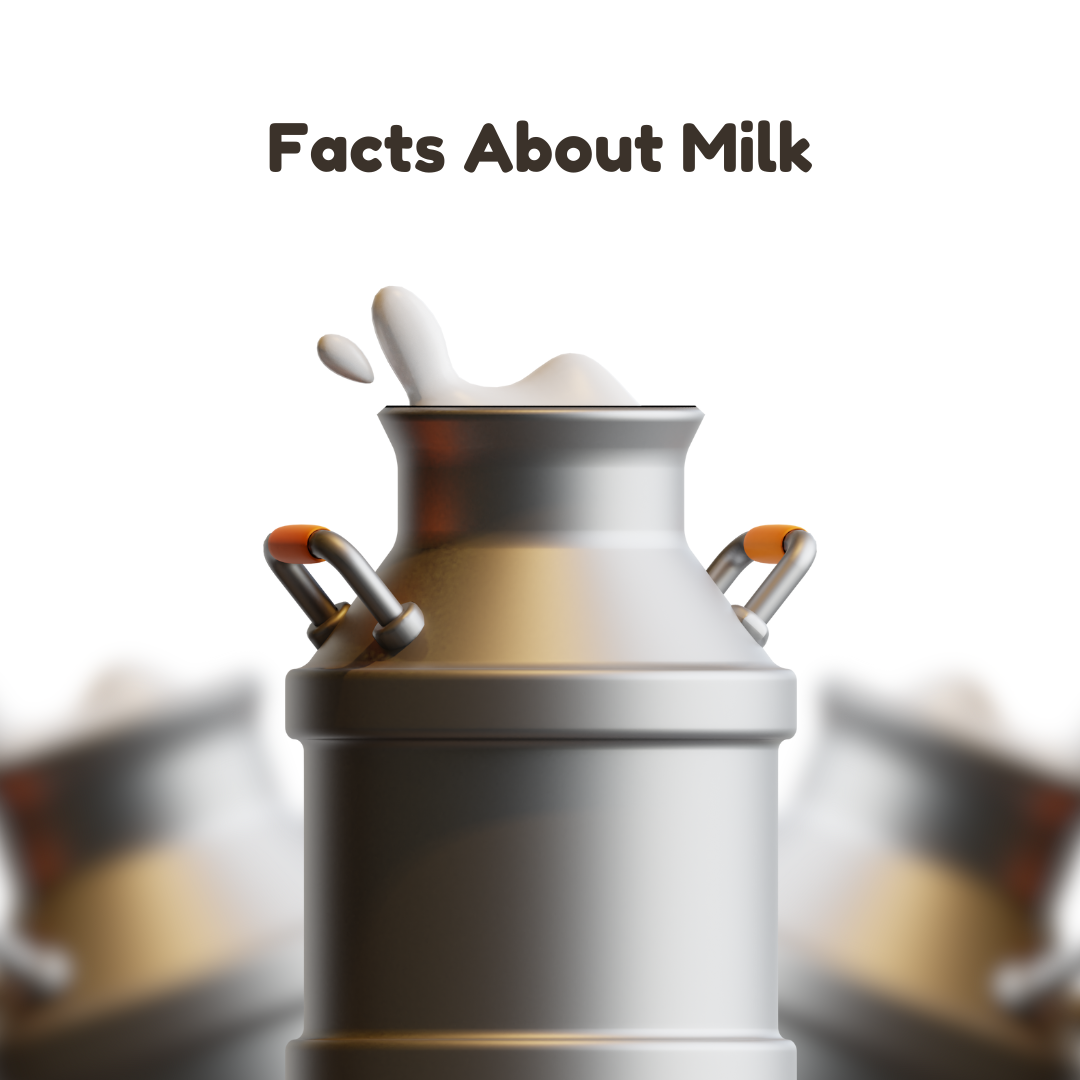Your shopping bag is empty
Facts About Milk
- Posted by: Enquiry Admin
- Comments: 0
- Categories: Nutrition & Diet
- Tags:
- Facts about Milk
When it comes to nutritional powerhouses, few foods can rival the versatility and health benefits of milk. In fact, packed with essential nutrients, milk has long been recognized as a cornerstone of a balanced diet. In this comprehensive exploration, we delve into the facts about milk, shedding light on its ideal nutrition and unveiling its numerous health benefits.
1. Nutrient-Rich Composition:
Milk stands out as a nutrient-rich beverage, providing a wealth of essential vitamins and minerals. In fact, a single cup of milk typically contains a significant amount of calcium, vitamin D, vitamin B12, and high-quality protein. And these nutrients play crucial roles in supporting bone health, immune function, and overall well-being.
2. Ideal Nutrition for All Ages:
Milk is renowned for its status as an epitome of ideal nutrition, encompassing a rich array of essential nutrients crucial for optimal health. This versatile beverage is a powerhouse of vitamins and minerals. This beverage includes calcium, vitamin D, and vitamin B12, fostering strong bones, immune resilience, and overall well-being. With a balanced composition of high-quality protein, milk stands as a prime source of amino acids vital for muscle growth and repair, making it an ideal nutrition choice for individuals across all age groups. Its ability to support weight management through the promotion of satiety further underscores its significance in fostering a healthy lifestyle. Embracing milk as part of a balanced diet not only contributes to the preservation of bone density but also provides a comprehensive nutritional package, embodying the essence of ideal nutrition for individuals seeking a wholesome and nourishing dietary foundation.
3. Facts about Milk as a Role in Bone Health:
The link between milk consumption and bone health is well-established. In fact, milk is an excellent source of calcium, a mineral crucial for maintaining strong and healthy bones. Regular intake of milk can help prevent conditions like osteoporosis and contribute to overall skeletal well-being.
4. Aiding Weight Management:
Contrary to common misconceptions, milk can be a valuable ally in weight management. Also, the protein content in milk promotes a feeling of fullness, helping individuals control their appetite and reduce overall calorie intake. This satiating effect can be beneficial for those aiming to achieve and maintain a healthy weight.
5. Versatility in Dairy Products:
The facts about milk extend beyond the traditional glass of cow's milk. In fact, the dairy aisle boasts an array of options, including various types of milk (skim, low-fat, whole), yogurt, and cheese. Also, each of these dairy products maintains a unique nutritional profile, offering consumers a range of choices to meet their dietary preferences and health goals.
6. Lactose Intolerance and Alternatives:
While milk is a nutritional powerhouse, not everyone can tolerate lactose, the sugar found in milk. However, lactose-free and plant-based alternatives, such as almond, soy, and oat milk, provide viable options for individuals with lactose intolerance. These alternatives can still offer essential nutrients, making it possible for everyone to enjoy the benefits of milk.
7. The Facts About Milk and Heart Health:
Contrary to some misconceptions, emerging research suggests that moderate dairy consumption may have a neutral or even positive impact on heart health. Some studies indicate that the nutrients in milk, such as potassium and magnesium, may contribute to maintaining healthy blood pressure levels.
Facts about Milk - A Conclusion
In conclusion, the facts about milk paint a compelling picture of an ideal nutrition source that transcends age groups and dietary preferences. From its role in bone health to its contribution to weight management, milk stands as a versatile and valuable component of a well-rounded diet. Whether enjoyed in its traditional form or through various dairy products, the benefits of milk are diverse and undeniable. As we navigate the realm of nutrition, let the facts about milk guide us towards a healthier and more informed lifestyle.
Sources
- The American Journal of Clinical Nutrition. (https://academic.oup.com/ajcn/article/108/4/676/5201454)
- Journal of the American Heart Association. (https://www.ahajournals.org/doi/full/10.1161/JAHA.120.017877)
- National Institutes of Health. (https://www.ncbi.nlm.nih.gov/pmc/articles/PMC3475925/)
- American Academy of Pediatrics. (https://www.healthychildren.org/English/healthy-living/nutrition/Pages/Milk-Allergy-Food-Allergy.aspx)












